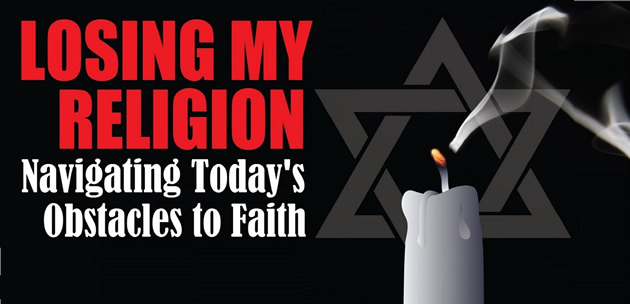In the first mishnah of tractate Rosh HaShanah, the School of Hillel asserts that the “New Year” for trees is on the 15 th day of the month of Shvat. The significance of this date is to determine when the year begins for assessing the tithes and other agricultural obligations for fruit trees. Basing themselves upon the famous Biblical passage that “man is like the tree of the field” (Deuteronomy 20:19), Chassidic masters suggest that this day also has a Rosh HaShanah significance for humans as well.
My first encounter with the idea of a linkage between people and trees occurred shortly before getting engaged to my wife Chashi. We went to meet with Rabbi Chaim Lipshutz, a renowned Israeli educator, protégé of Piaget and graphologist. Rabbi Lipshutz asked us each to submit a short paragraph of our handwriting and to draw a picture of a tree. He was able to get a very accurate bead on our personalities, and I began to think about why a walk in the forest can be like a visit with relatives.
Our entanglement with the Tree of Knowledge of Good and Evil caused humanity’s first exile. But the Midrash observes that Adam and Eve were not the only ones to sin in the Garden of Eden – the trees themselves sinned first. G-d commanded the earth to bring forth fruit trees (where the tree itself would be edible) that would also produce fruit. The earth and trees “rebelled” and didn’t produce trees that were edible, so G-d cursed the earth (Genesis Rabbah 5:9).
We are close in death as well. Pirke De Rebbi Eliezer teaches that when a person dies, and when a fruit tree is cut down, “their voices go from one end of the world to the other, and their voices are inaudible” (Chapter 34).
And we have similar issues. An insightful Midrash relates that when iron was first created, the trees began to shake with fear. The iron rebuked them and said, “Why are you so afraid? If you don’t allow your wood to be used by me (as an ax handle), no harm can come to you!” (Genesis Rabbah 5:10) Like trees, we are often our own worst enemies.
********************
Mankind was given a dual mandate in relating to the world of trees and the environment in general. Adam was placed in the Garden of Eden and charged “to work it and to protect it” (Genesis 2:15). Even though humanity was given permission to “exercise dominion” over the world into which they were placed (Genesis 1:26) and to “subdue” it by harnessing its resources (Genesis 1:28), the Torah warns us not to wantonly destroy or waste the earth’s bounty (Deuteronomy 20:19-20, Sefer HaChinuch Mitzvah 529). The Midrash relates that G-d led Adam through the Garden of Eden and said, “Look at all of my creations and how beautiful and wonderful they are. I have created everything for your benefit. Consider this and be careful not to damage or destroy My world. For if you damage it, there will be no one to restore it after you.” (Koheles Rabbah 7:28)
Our lives are guided by a similar polarity. Our primary task is to develop ourselves, perfect our characters and actualize our spiritual potential by nurturing a relationship with the Almighty (Vilna Gaon’s Even Shleima 1:1-2, Mesillas Yesharim Chapter 1, Deuteronomy 6:5). At the same time, we are to carefully protect ourselves and safeguard our health (Deuteronomy 4:9,15; 22:8).
*********************
A Rosh HaShanah is an opportunity to reflect on G-d’s first question to us all: “Where are you?” (Genesis 3:9) On Tu B’Shvat we are challenged to evaluate the quality of our interactions with the natural world. Do we really appreciate the reality that the world ultimately belongs to G-d? (Psalm 24:1) Are we sensitive to the voice of G-d that speaks to us through the natural world? Isaiah writes, “…the whole world is filled with His glory” (6:3). We can also read this verse: “…the fullness of the world is His glory!” The Rambam tells us that contemplating the grandeur of the natural world is the most powerful catalyst to fostering love for the Creator (Yesodei HaTorah 2:2).
The late Rabbi Avigdor Miller related that the highest spiritual experience he ever had in his life took place during a hike in the Lithuanian hills near the Slabodka Yeshivah where he was learning. He sat for an hour, staring at a flower and deeply contemplating its structure and beauty. He felt a closeness to G-d that he claimed approached the intensity of a prophetic experience! (Rabbi Mordechai Dolinsky’s “Walking With Rabbi M iller” page 89).
Tu B’Shvat should also prompt us to address any shortcomings we may have as individuals and as a society in failing to act as responsible stewards over the environment. Rabbi Avraham Yitzchak Kook taught that mankind’s tendency to focus almost exclusively on goals rather than means is related to the “rebellion” of the earth and trees in the Garden of Eden (“Lights of Repentance” Chapter 6).
The brokenness of this world is reflected in our singular focus on the sweet tasting fruits and rejection of the tasteless trees that we see merely as a means to their prizes. This quirk may explain our rampant shortsightedness in frequently failing to consider the long-term affects of pollution and wasteful consumption.
Our Rosh HaShanah calls out to us with the blast of a shofar. This Tu B’Shvat, let’s listen to the voice of the trees – trees that are on fire with the light of Divinity. And let’s do our part to ensure that the trees will not be consumed!


